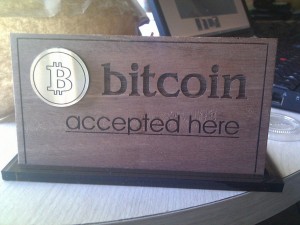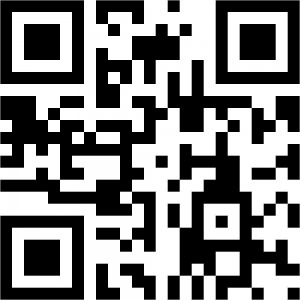You are viewing our site as an Agent, Switch Your View:
Agent | Broker Reset Filters to Default Back to List3 Forms of Tech That Are Changing the Real Estate Market
April 08 2015
The future is right around the corner. Agents and brokers need to prepare for digital technology that could (maybe) change how or why people buy and sell homes. Here is our top three emerging real estate technologies that could (again, maybe) affect the real estate industry in a big, bad way.
Bitcoin:
 Bitcoin is a virtual currency that can be spent globally, and are not affected by taxes or regulatory laws. Finite in nature, new "internet money" can never be created or reprinted. A wide range of businesses are starting to accept these as a legitimate form of payment, including the real estate industry.
Bitcoin is a virtual currency that can be spent globally, and are not affected by taxes or regulatory laws. Finite in nature, new "internet money" can never be created or reprinted. A wide range of businesses are starting to accept these as a legitimate form of payment, including the real estate industry.
Real estate can be bought with these virtual currencies, and not talking about dinky lots in the middle of nowhere. Need an apartment building in Romania? An industrial lot in El Paso, Texas? What about a 2-bedroom apartment in London? All of these properties, and more, can be purchased with Bitcoin or other forms of virtual currency.
So, how does this affect industry buyers and sellers? Well, not much if your brokerage or business does not accept virtual currency. Although most businesses don't accept these as actual payment, some large brokerages (like this one in New York) around the world have started.
This is not unique to the real estate industry, a survey given to U.S. retailers showed that 8 percent plan on accepting Bitcoin by 2016. Not bad for a form of currency that's been around for less than a decade.
Much to the U.S. government's dismay, virtual currencies are here to stay. If they start growing in popularity with in the coming years, it may be in your best interest to accept "internet bucks."
Smarthomes:
 We use smartphones, wear smartwatches, and drink smartwater, it's no surprise that the modern American home is getting their share of tech upgrades. Smarthomes are outfitted with some sleek features, like the ability to manage security and climate control systems from a cell phone, or being built from the ground up to be green and energy efficient.
We use smartphones, wear smartwatches, and drink smartwater, it's no surprise that the modern American home is getting their share of tech upgrades. Smarthomes are outfitted with some sleek features, like the ability to manage security and climate control systems from a cell phone, or being built from the ground up to be green and energy efficient.
Some of these homes are outfitted with plant monitors for your indoor shrubbery, hidden pet dishes, electronic paper towel dispensers, portable surveillance devices, and even electronic dog doors controlled by an RFID tag stashed in your mutt's collar.
Homes with these features are on the rise, one study shows smart homes will hit mass-market appeal in about three years.
Although 12 percent of U.S. homes have some form of smart home feature, there are still major hurdles when it comes to mass adoption. According to Advertising Age, there is no uniform software system to run a home, so the market is fragmented because there are very different interfaces. This creates connection issues on your devices and keeping your home system safe.
In layman's terms? Running a house on multiple systems is confusing, difficult, and impractical.
QR codes:
 Almost every cell phone or mobile device is equipped with a camera that can read QR codes. They are those black and white, static-like images plastered all over the place. They are used to connect people to additional information on whatever they are scanning.
Almost every cell phone or mobile device is equipped with a camera that can read QR codes. They are those black and white, static-like images plastered all over the place. They are used to connect people to additional information on whatever they are scanning.
For example, if I scanned on a QR code on a movie poster, it make take me to a website with trailer, information about the actors, or where I can buy movie tickets.
One way agents are taking advantage of QR codes is to plaster them on their lawn signs, so when people walk by, they can get all the information they need about a particular property. Anther popular strategy is putting these codes on your business cards or other marketing materials.
The point is to make information as accessible as possible for people, and delivering a clear message. Problem is, people have to physically take out their phone and scan the image. This may seem like a low barrier of entry on paper, but people are used to instant gratification when looking for information online.
According to a study conducted by Marketing Carts, only 21 percent of smartphone users has ever scanned a QR code, and 2 percent said they scan codes every day.
Are you an agent who deals with many clients over the age of 45? If so, you may want to test out if QR codes can drum up some business. The report shows that smart phone users who scan codes aged 45-65 are rapidly growing.
Whatever the future holds in real estate technology, Realty Commander will be here to guide readers through new savvy, useful, or downright weird as well as provide the best transaction management software on the market.
To view the original article, visit the Realty Commander blog.









